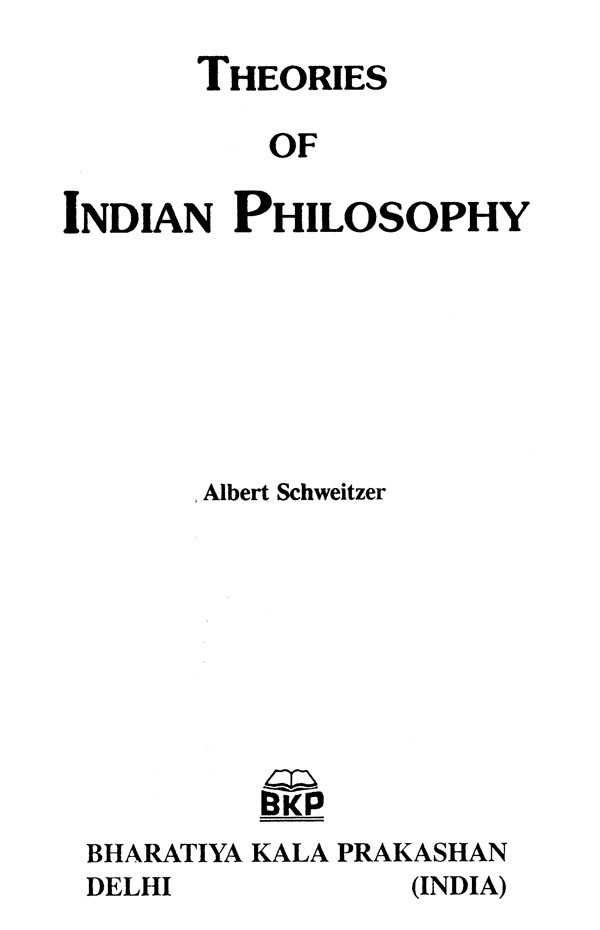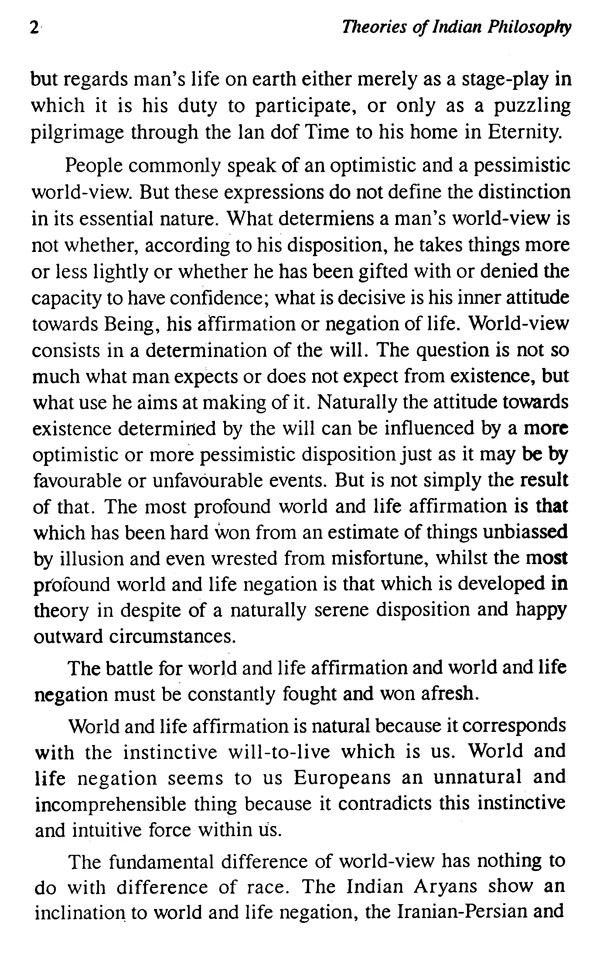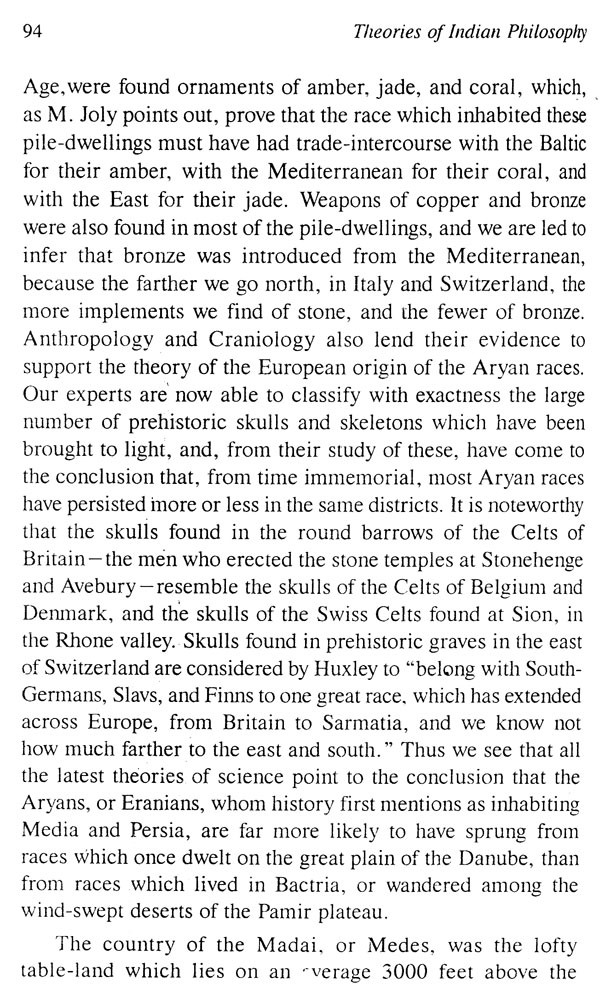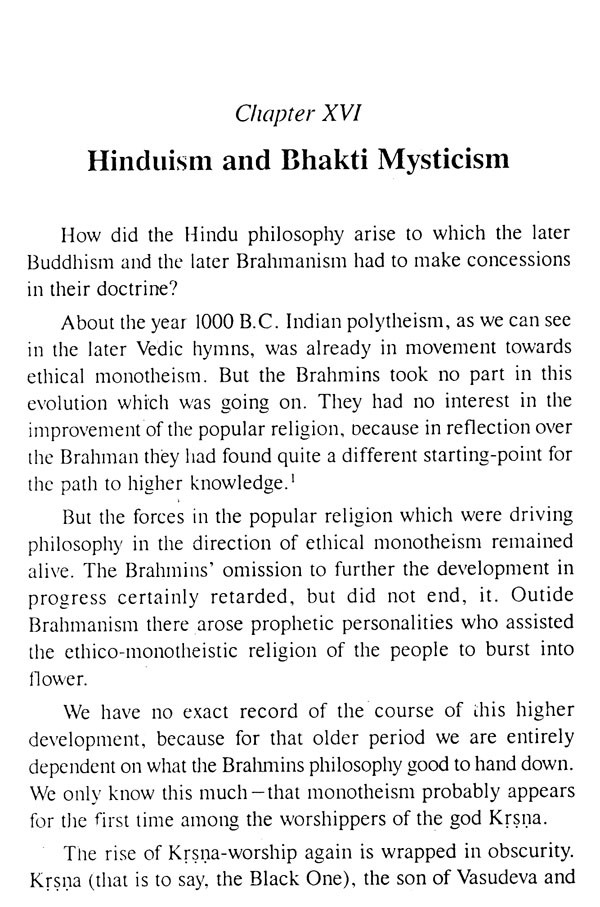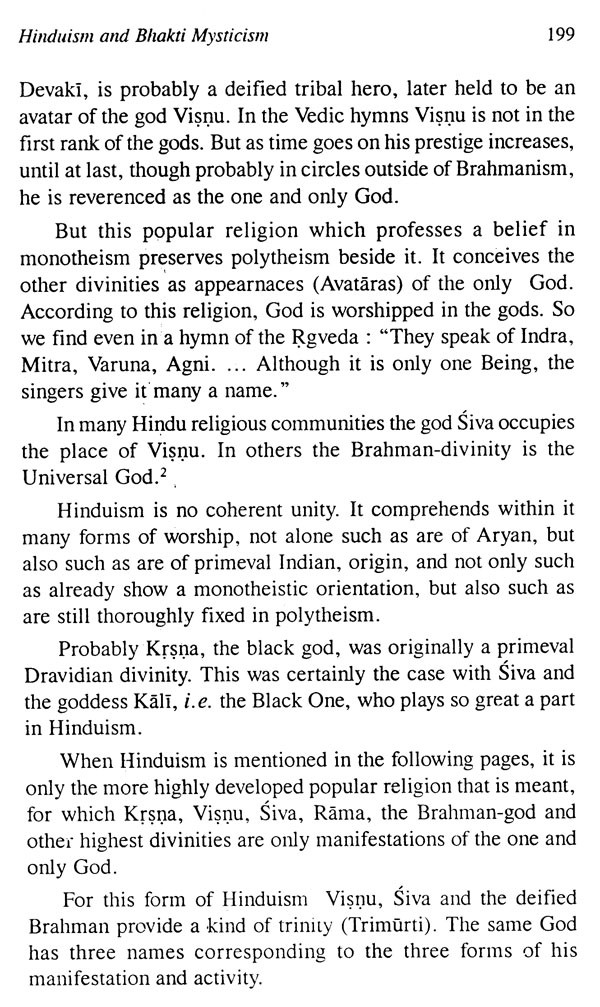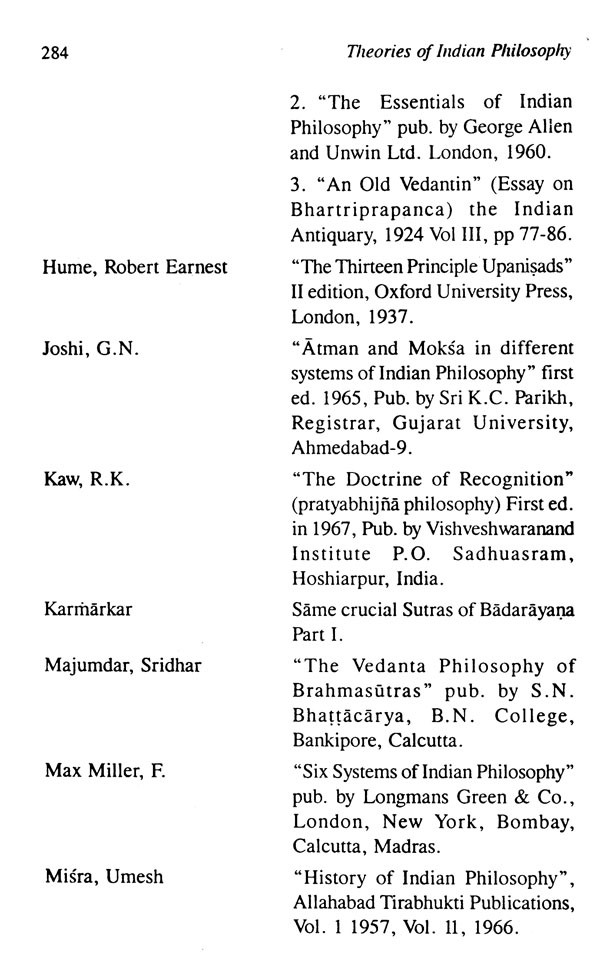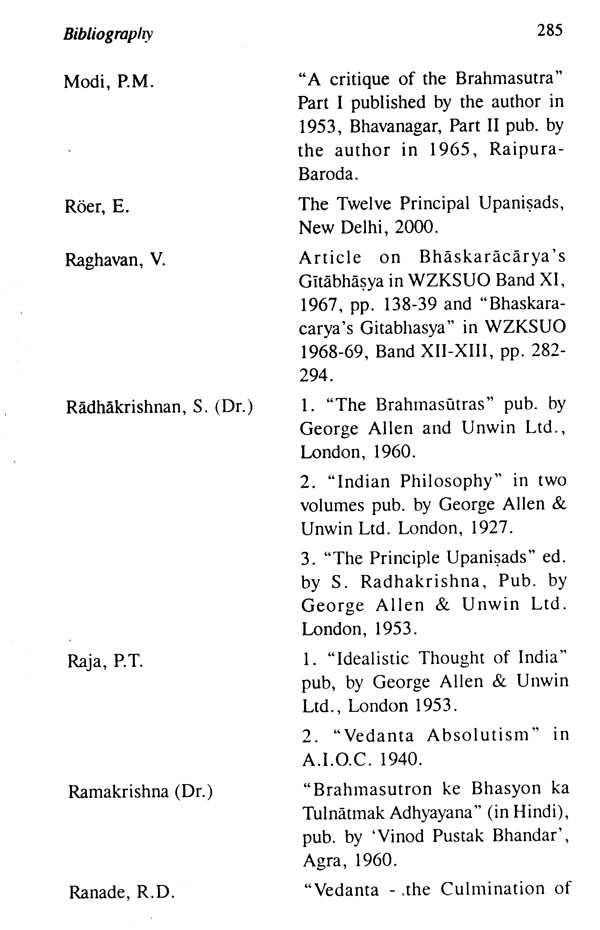
Theories of Indian Philosophy
Book Specification
| Item Code: | UAP444 |
| Author: | Albert Schweitzer |
| Publisher: | Bharatiya Kala Prakashan |
| Language: | English |
| Edition: | 2001 |
| ISBN: | 8186050701 |
| Pages: | 304 |
| Cover: | HARDCOVER |
| Other Details | 9.00 X 6.00 inch |
| Weight | 490 gm |
Book Description
To gain an insight into Indian philosophy, and to analyse it and discuss our differences, must necessarily make European philosophy clearer and richer.
If we really want to understand the philosophy of India we must get clear about the problems it has to face and how it deals with them. What we have to do is to set forth and explain the process of development it has passed through from the time of the Vedic hymns down to the present day.
I am fully conscious of the difficulty of describing definite lines of development in a philosophy which possesses in so remarkable a degree the will and the ability not to perceive contrasts as such, and allows ideas of heterogeneous character to subsist side by side and even brings them into connection with each other. But I believe that we, the people of the West, shall only rightly comprehend what Indian philosophy really is and what is its significance for the philosophy of all mankind, if we succeed in gaining an insight into its processes.
Like every European who studies Indian philosophy, I am deeply indebted to the scholars who have published the texts and been responsible for the fundamental work of research.
**Contents and Sample Pages**
